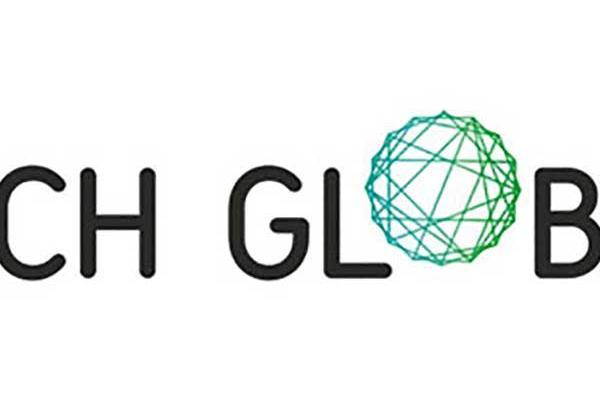Last month, we looked at mindfulness—understanding your own emotions to meet and achieve your goals. This month, we take this a step further by looking at how you can work effectively by managing your emotions and relating to the emotions of your co-workers.
Why?
Most business environmentals are relational. You have co-workers, bosses and subordinates all participating in the larger goal of business success. People bring different aptitudes and experiences to the work team, but they also bring their personalities to the job. Sometimes those personalities spur team cohesiveness and productivity.
For example, in sports, people reference the “glue guy or gal,” the individual who helps elevate other members of the team. There’s often at least one person like that at your school, office, shop or factory—someone who just always seems to say the right thing, to know when to support others and when to leave others to their own devices.
Whether they know it or not, these people are using their emotional intelligence (often referred to as EQ) in their interactions on the job.
Service With a Smile
EQ will become even more crucial as the service economy grows.
The Bureau of Labor Statistics predicts big growth for many service industries in its Projections of Industry Employment 2014–2024. A service economy by its nature relies on workers with people skills, and emotional intelligence is a key success component.
Published on Six Seconds: The Emotional Network YouTube channel, Melkart Rouhana, former Corporate Director of Global Learning at The Ritz-Carlton Hotel Company, declares that emotional intelligence “is not part of the game, it is the game.”
So What Is Emotional Intelligence?
Emotional intelligence has been a growing buzzword in business management cycles for the past 30 years, but its roots come from deep in our culture. What is the Oracle of Delphi's "know thyself" if not a concise version of many a contemporary business maxim?
At its most basic, emotional intelligence is the ability to recognize and exercise control over your own emotions, and learn to react mindfully to the emotions of others. It's important to emphasize that emotional intelligence is not simply being nice—though that’s a good place to start! Exercising your EQ means applying your sensitivity to achieve your personal and business goals more efficiently.
Daniel Goleman is a noted contemporary thinker on emotional intelligence. His 1995 book, Emotional Intelligence: Why It Can Matter More than IQ, was a Number 1 best-seller and is still cited today. Goleman gives seminars on the subject of EQ. In this short YouTube clip, you can watch Goleman introduce the four core competencies of EQ:
- Self-awareness
- Self-management
- Social awareness
- Relationship management
There are many additional measures of emotional intelligence.
Journalist Justin Bariso, author of EQ Applied: The Real-World Guide to Emotional Intelligence, posts many EQ-related articles on his website, including one that lists 13 signs of high emotional intelligence.
Feeling Multicultural
Different cultures have differing cultural mores, and that’s one of the challenges of working in a multicultural, global environment. Those social cues and triggers that are a part of you may not register across the border or across the globe.
So it’s important to consider your team members and clients: where do they live, what are their interests, what have their actions shown you in your previous interactions with them? Remember that emotional intelligence is not just an indicator of your self-awareness, but also a reflection on how you perceive and react to the emotions and feelings of others.
TL:DR-Here's a quick infographic to help you improve your emotional intelligence.
How You Can Improve Your EQ
Is your emotional intelligence set in stone, or can you learn to be a more empathetic person?
Emotional intelligence education in schools has grown in recent years. The Yale Center for Emotional Intelligence promotes its RULER teachings in schools. (RULER is an acronym for what the center has determined to be the five skills of emotional intelligence: recognizing, understanding, labeling, expressing and regulating emotions.)
EQ is a learned behavior, even for adults. Greater Good Magazine, published by UC Berkeley’s Greater Good Science Center, cites a 1996 study, “Increasing emotional intelligence, (how) is it possible?” originally published in the journal Personality and Individual Differences. The study found that after just 10 hours of workshop training, “Results showed a significant increase in emotional identification and emotional management abilities in the training group. Follow-up measures after six months showed that these changes were persistent.”
There are many online tests that you can take to measure your EQ. For example, Psychology Today offers a free online test that takes about 30 to 45 minutes. Take the test.
Learn More
If you want to learn more, there are online resources and classes that can help develop your emotional intelligence. A few are listed below.
- UC Berkeley Extension offers Intensive Workshop in Emotional Intelligence for Leaders, designed to build your leadership skills through improved EQ.
- AmeriCorps VISTA offers many free resources to help boost your emotional intelligence.
- The Institute for Health and Human Potential offers certification in emotional intelligence intended for workplace leaders and facilitators.
As our business interactions continue to take on a much larger global leaning—face-to-face conversations with colleagues from a different culture, emails to co-workers who had a different upbringing, meetings with potential business partners—you'll want to make sure that your EQ is as high as it can be.



